
Julia Catherine Crick, FBA FSA (born 1963) is a British historian, medievalist, and academic. She is Professor of Palaeography and Manuscript Studies at King's College London. [1]

Julia Catherine Crick, FBA FSA (born 1963) is a British historian, medievalist, and academic. She is Professor of Palaeography and Manuscript Studies at King's College London. [1]
Studying at Gonville and Caius College, Cambridge, Crick completed the tripos in Anglo-Saxon, Norse and Celtic in 1985. [2]
Crick began her career as a tutor and Fellow of Gonville and Caius. [3] In 1992, she joined the University of Exeter as a lecturer in the Department of History and Archaeology. She was promoted to senior lecturer in 2001 and to associate professor in 2007. She has maintained her links with the university as an honorary university fellow. [4]
In September 2012, Crick moved to King's College London where she had been appointed Professor of Palaeography and Manuscript Studies. [4] From 2013 to 2017, she was Director of the Centre for Late Antique and Medieval Studies. [3]
Crick specialises in medieval palaeography, medieval perceptions of the past, the history of medieval Britain to 1200 and land and power in Anglo-Saxon England. She sits on the editorial boards of Arthurian Literature and Anglo-Saxon, and was formerly on the board of Early Medieval Europe. [1]
On 21 March 2019, Crick was elected a Fellow of the Society of Antiquaries of London (FSA), [5] while in 2021 she was made a Fellow of the British Academy. [6]
Jane Barbara Stevenson is a British historian, literary scholar, and author.

Sir Thomas William Shakespeare, 3rd Baronet, is an English sociologist and bioethicist. He has achondroplasia and uses a wheelchair.
David Norman Dumville was a British medievalist and Celtic scholar.
Oliver James Padel is an English medievalist and toponymist specializing in Welsh and Cornish studies. He is currently Honorary Research Fellow in the Department of Anglo-Saxon, Norse, and Celtic in the University of Cambridge, and visiting professor of Celtic at the University of the West of England.
Elin Manahan Thomas is a Welsh soprano. A specialist in Baroque music, she sang at the wedding of Prince Harry and Meghan Markle in May 2018.
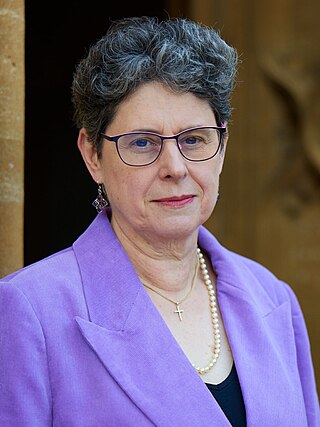
Sarah Rosamund Irvine Foot, is an English Anglican priest and early medieval historian. She has been Regius Professor of Ecclesiastical History at the University of Oxford since 2007, and Dean of Christ Church, Oxford since 2023.
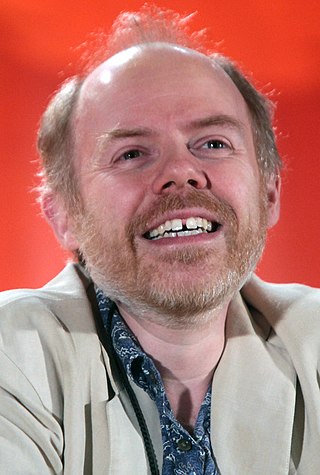
Dan Starkey is an English actor known for making numerous appearances in the BBC One science-fiction TV series Doctor Who. He has portrayed a number of different Sontaran characters, most notably Strax, who has come across the Eleventh and Twelfth incarnations of the Doctor, played by Matt Smith and Peter Capaldi respectively. In 2016 joined the CBBC sketch show, Class Dismissed and has appeared in 36 episodes He left the show after Series 3.
Christopher Nugent Lawrence Brooke was a British medieval historian. From 1974 to 1994 he was Dixie Professor of Ecclesiastical History at the University of Cambridge.
Richard Sharpe,, Hon. was a British historian and academic, who was Professor of Diplomatic at the University of Oxford and a fellow of Wadham College, Oxford. His broad interests were the history of medieval England, Ireland, Scotland and Wales. He had a special concern with first-hand work on the primary sources of medieval history, including the practices of palaeography, diplomatic and the editorial process, as well as the historical and legal contexts of medieval documents. He was the general editor of the Corpus of British Medieval Library Catalogues, and editor of a forthcoming edition of the charters of King Henry I of England.
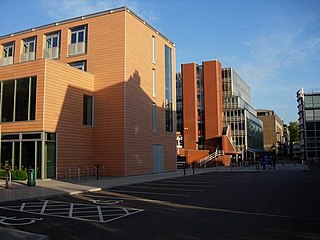
The Department of Anglo-Saxon, Norse and Celtic is one of the constituent departments of the University of Cambridge, and focuses on the history, material culture, languages and literatures of the various peoples who inhabited Britain, Ireland and the extended Scandinavian world in the early Middle Ages. It is based on the second floor of the Faculty of English at 9 West Road on the Sidgwick Site. In Cambridge University jargon, its students are called ASNaCs.
Michael Lapidge, FBA is a scholar in the field of Medieval Latin literature, particularly that composed in Anglo-Saxon England during the period 600–1100 AD; he is an emeritus Fellow of Clare College, Cambridge, a Fellow of the British Academy, and winner of the 2009 Sir Israel Gollancz Prize.
Edmund Crosby Quiggin was a British linguist and scholar. Born in Cheadle, Staffordshire, he was educated at Kingswood School in Bath. In 1893 he matriculated at Gonville and Caius College, Cambridge, to read Modern and Medieval Languages. He graduated with first-class honours. The fellows of Caius included the lawyer and legal historian Charles Henry Monro, who spoke Irish and encouraged Quiggin to study in this area.
Florence Elizabeth Harmer FBA was an English historian, specializing in the Anglo-Saxon period. Translating from Old English and Latin, she edited a number of primary sources for early English history, and her Anglo-Saxon Writs (1952) remains a standard text.
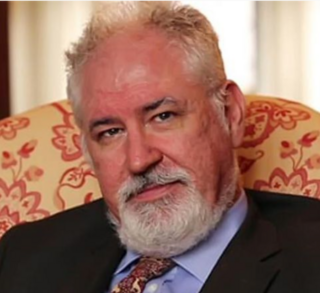
Andrew Philip McDowell Orchard, is a British academic of Old English, Norse and Celtic literature. He is Rawlinson and Bosworth Professor of Anglo-Saxon at the University of Oxford and a fellow of Pembroke College, Oxford. He was previously Provost of Trinity College, Toronto, from 2007 to 2013. In 2021, claims of sexual harassment and assault by Orchard were publicized, which were alleged at universities where he has worked, including the University of Cambridge and the University of Toronto.
David Michael Benjamin Denison is a British linguist whose work focuses on the history of the English language.
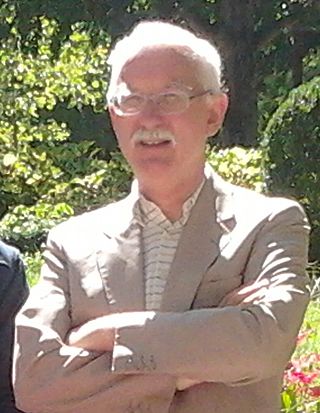
Andrew Breeze FRHistS FSA, has been professor of philology at the University of Navarra since 1987.
Lesley Jane Abrams, is a retired academic historian. She was a Colyer-Ferguson Fellow of Balliol College, Oxford, between 2000 and 2016, and Professor of Early Medieval History at the University of Oxford from 2015 to 2016.
Rosalind Claire Love FBA is a British historian, medievalist, and academic. She has been a Fellow of Robinson College, Cambridge since 1993, and Elrington and Bosworth Professor of Anglo-Saxon in the Department of Anglo-Saxon, Norse and Celtic at the University of Cambridge since 2019.

The Faculty of English is a constituent part of the University of Cambridge. It was founded in 1914 as a Tripos within the Faculty of Medieval and Modern Languages. It could be studied only as a 'Part I' of a degree course, alongside a 'Part II' either in medieval languages or from another Tripos. In 1926, the course became a distinct Faculty.
Patrick Sims-Williams is Emeritus Professor of Celtic Studies at Aberystwyth University and founding editor of the journal Cambrian Medieval Celtic Studies.